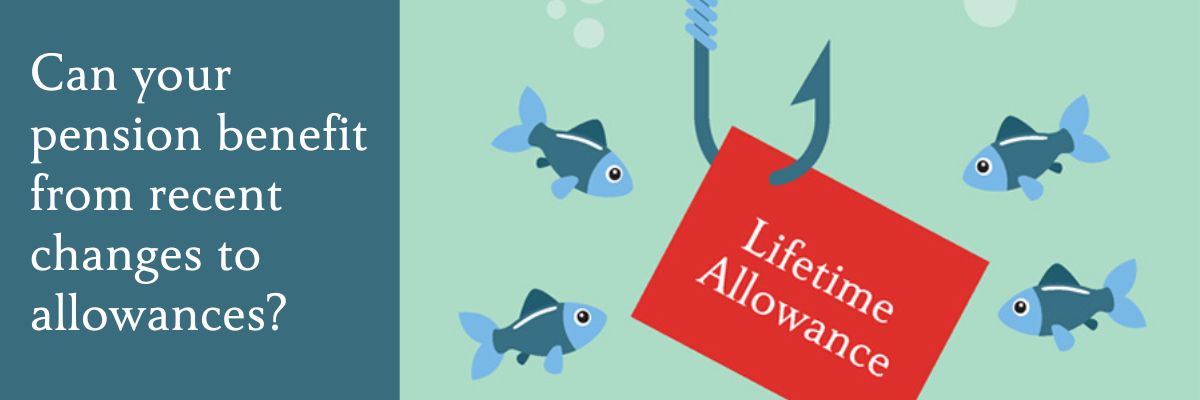Can your pension benefit from the Lifetime Allowance changes

The extent of change in pension tax legislation announced in the Spring Budget caught many by surprise.
It had been rumoured that Jeremy Hunt would introduce some changes designed to incentivise those over the age of 50 who left the labour market during the COVID pandemic to return to employment. However, removal of the Lifetime Allowance tax charge from 06 April 2023 and the complete scrapping of the Lifetime Allowance in a future Finance Bill was unexpected.
The Lifetime Allowance (LTA) is the total amount that an individual can build in pension savings without incurring a tax charge, and stands at £1,073,100. The Lifetime Allowance tax charge on benefits taken in excess of the LTA prior to 06 April 2023 was 55% if drawn as a lump sum, or 25% if drawn in any other way, for example income drawdown. Now, no tax charge will apply.
This represents a significant change, reversing a decade of declining LTA, which discouraged higher earners from saving in pensions. The government hopes abolishing this limit, combined with other changes to pension savings, will encourage workers who took early retirement to return to the workforce.
Whilst it is unclear as to how successful these measures will be in encouraging those recently retired to return to work, they may at least provide a greater incentive to not take early retirement. Though the Chancellor cited senior NHS staff as targeted beneficiaries of these changes, in reality the benefits will be tangible for many. In particular, those who claimed HMRC ‘protection’ in one of its many guises to secure a higher than standard lifetime allowance with the caveat that they ceased further pension contributions, will welcome the ability to make income tax relievable pension contributions to their schemes once again. For some years, those with pension pots at or around the LTA have committed monies to more obscure and higher risk investments in pursuit of an income tax reduction, which will now be available to them through what should be far more benign savings products.
For those with defined contribution plans, the inheritance tax exemption ordinarily afforded, and the ability to effectively leave a fund to beneficiaries – whilst maintaining many of the tax advantages of the original pension – may be particularly compelling, and encourage further saving.
The changes may be good news for many, but they are not without critics. Most notably, the Labour Party pledged to undo many of these changes if brought to power at the next General Election. They branded them a “£1bn bung”, this being a reference to the approximate cost of the legislation over the next five years. In addition they argued the changes are inequitable, benefiting those with higher earnings and larger pension pots. This response and the fact that the next General Election is not too far away, has prompted industry concern that the LTA could become a battleground in the next election campaign.
With that said, there are always many ifs, buts and maybes where future tax legislation is concerned. The changes recently introduced may well be an indefinite or at least longer-term fixture. As the nationwide issue of underfunded pensions persists, despite the advent of auto enrolment over a decade ago, anything that encourages saving towards retirement ought to be welcomed.
If you would like more information about how these changes may affect you or guidance on your overall retirement income please do get in touch.


